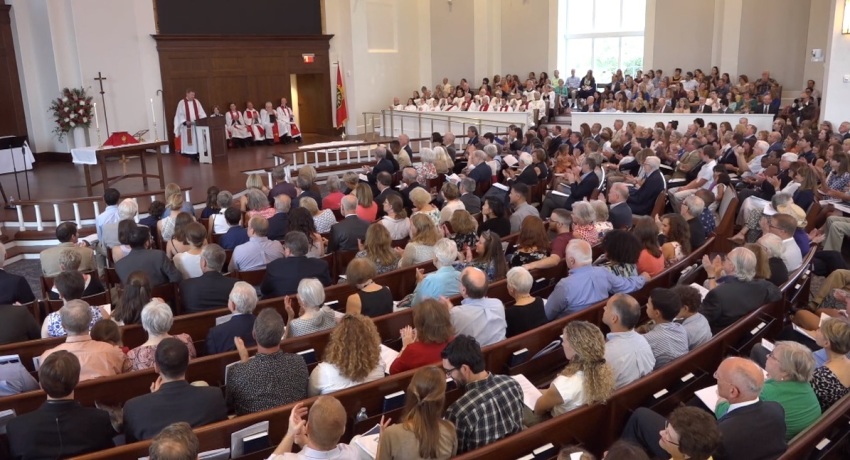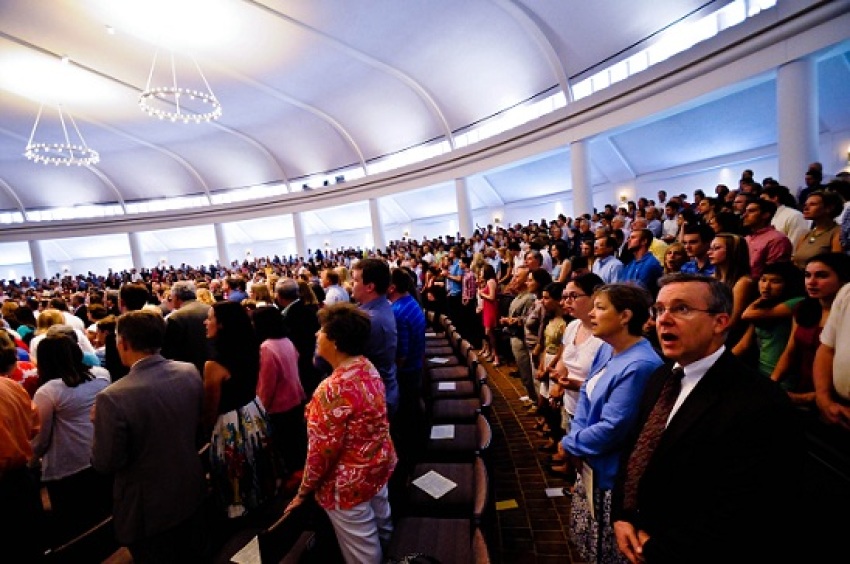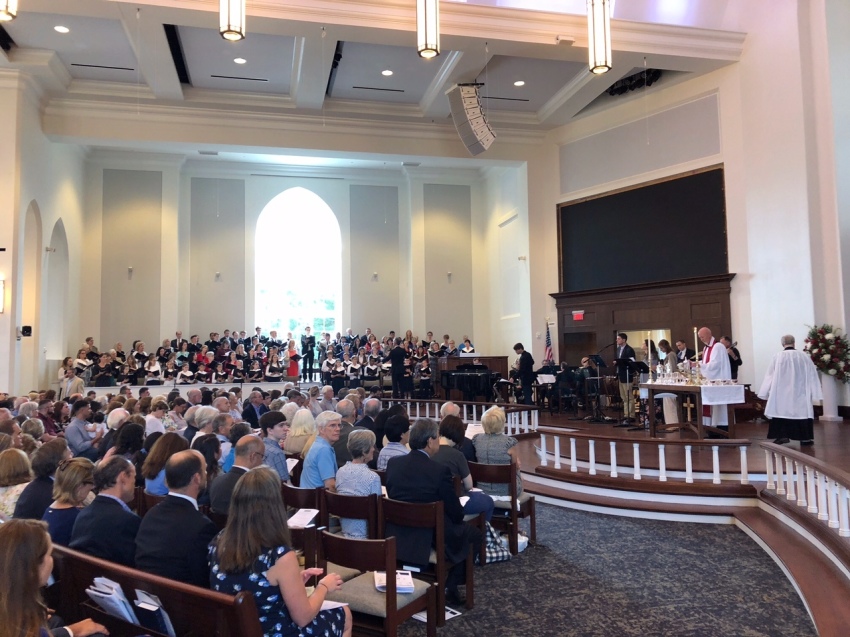After losing property to Episcopal Church, Anglican congregation’s first Sunday in new building draws over 2,000

More than 2,000 people attended worship services held at a Virginia Anglican congregation’s new sanctuary, being held years after they had to leave their original property due to losing a legal battle with The Episcopal Church.
The Rev. Sam Ferguson, rector at The Falls Church Anglican of Falls Church, Virginia, preached the sermon on Sunday, noting that the congregation was completing a “tabernacling season,” in which they worshiped at several different locations over the course of seven years.
“God was faithful, but we missed home,” explained Ferguson to those gathered at the new sanctuary on Sunday morning. “I am saying to you the tabernacling season is over. Praise God.”
TFCA lost control of its historic property in 2012 via a lawsuit. In comments emailed to The Christian Post on Monday, the church explained that they had a total of 2,042 attendees for their two services, one held at 8:45 a.m. and another held at 11:15 a.m.
The Sunday services were a “church family” occasion, with people from other congregations planted by them attending, as well as regular members.
“There is still work to finish on the building and grounds, so we are not holding a big, public ‘launch’ until later in the fall, so as to give our contractors the time they need to finish everything on the punch list,” explained the church.
“At a not-yet-decided date, we will have an open house-ministry fair to invite our neighbors as well as our congregation members to a celebratory time.”
A legal battle lost

The Falls Church Anglican was one of 11 congregations in the Episcopal Diocese of Virginia that voted to leave the mainline denomination in 2006 and 2007.
At issue was the denomination’s liberal theological direction, especially the 2003 decision to ordain an openly gay bishop, the Rev. Gene Robinson, as head of the Episcopal Diocese of New Hampshire.
The Episcopal Diocese of Virginia then sued the departing congregations over ownership of the church properties. Four congregations were removed from the suit due to technicalities or out-of-court settlements.
In 2008, Fairfax County Circuit Judge Randy Bellows ruled in favor of the remaining seven departing congregations. However, the Virginia State Supreme Court later overturned Bellows' decision and returned the case back to Fairfax County.
In January 2012, Judge Bellows ruled in favor of the diocese. That May, the Anglican congregation held their last official worship services at the historic Falls Church property.
The church property is currently overseen by The Falls Church Episcopal, a congregation comprised of those who opted to remain with The Episcopal Church.
A ‘glorious’ service

Attendees of the worship services at the Anglican congregation’s new building expressed hope for the future of the church.
Tyler O’Neil, who started attending TFCA in 2013 and who previously worked for CP, sang in the choir for the 11:15 a.m. service on Sunday.
O’Neil explained that when he began worshiping at TFCA, the congregation was still meeting at Bishop O’Connell High School in Arlington. He considered the Sunday service to be “glorious.”
“As a church, we’re looking forward to enjoying the new church, having to spend less to rent spaces and now being able to worship above ground in that beautiful sanctuary,” said O’Neil.
Jeff Walton, Anglican Program director at the Institute on Religion & Democracy, attended the 8:45 a.m. service and was surprised to see the sanctuary being “completely full” for the earlier service.
“Spillover seating was used downstairs in the lower narthex. I am told that the subsequent 11:15 service was also completely full,” explained Walton.
Walton had been a member of TFCA from 2001 to 2009. He later joined Incarnation Anglican Church, a congregation planted last year by the nearby Restoration Anglican Church, which was itself a church plant of TFCA.
“In his Sunday sermon, Falls Church Rector Sam Ferguson noted that the Bible has many examples of people being displaced for a season. God providentially engages his people in an activity or period of renewal that otherwise might not have occurred without this movement,” Walton said.
“Church buildings serve as missionary outposts in the communities that church congregations seek to minister amongst. While the buildings themselves are not ‘the church,’ they do matter in providing a physical presence in a community.”
Walton noted that there were other new building projects underway for Anglican congregations in northern Virginia, including Church of the Apostles in Fairfax and Immanuel Anglican Church in Woodbridge.



























